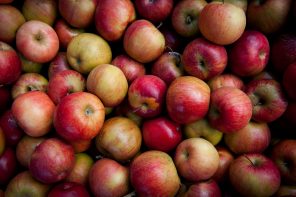Take a look at this video. The voice is the truly fine actor, now deceased, Philip Seymour Hoffman. The first few lines of the video are his reflections about pleasure. He notes:
“Pleasure is not happiness, because I kill pleasure. I take too much of it and make it unpleasurable. There is no pleasure that I haven’t made myself sick on.”
This is especially moving given his fairly recent death. He acknowledges that he has thought extensively about the nature of pleasure and the difference between being pleasured and being truly happy.
It’s an almost scientific reflection on the nature of pleasure and how ultimately it leaves one disappointed. That’s because, if you believe the Bible, pleasure is not the end; it’s a sign post pointing you to something greater. Such was the case with the preacher in Ecclesiastes, another who was well versed in pleasure of all kinds:
I said to myself, “Go ahead, I will test you with pleasure; enjoy what is good.” But it turned out to be futile. I said about laughter, “It is madness,” and about pleasure, “What does this accomplish?” I explored with my mind how to let my body enjoy life with wine and how to grasp folly—my mind still guiding me with wisdom—until I could see what is good for people to do under heaven during the few days of their lives (Ecclesiastes 2:1-3).
Futility. Madness. Emptiness. Unless you see the pleasure behind the pleasure.
Back to Hoffman’s video, and we find him saying there is no pleasure he hadn’t made himself sick on. This is our natural propensity. We find something that brings us the slightest amount of joy, the slightest amount of comfort or happiness, and we give ourselves fully to it. We lay down our lives for it. We worship at its altar only to find that our thirst is not truly quenched; our desires are not truly satisfied; our longings are not truly fulfilled. In the end, that which promised us happiness leaves us with a gaping kind of inner sickness.
We are, as a people, stricken with the disease of falling perpetually short in our pursuits. It’s not that we are pursuing the wrong things; it’s that we are pursuing those things to the wrong ends and in the wrong ways. When everything under the sun disappoints, we have no other option to look out from under the sun for what truly satisfies, before it’s too late:
Come, everyone who is thirsty, come to the waters; and you without money, come, buy, and eat! Come, buy wine and milk without money and without cost! Why do you spend money on what is not food, and your wages on what does not satisfy? Listen carefully to Me, and eat what is good, and you will enjoy the choicest of foods. (Isaiah 55:1-2).
Subscribe to MichaelKelley.co
Never miss a new post. Subscribe to receive these posts in your inbox and to receive information about new discipleship resources.



